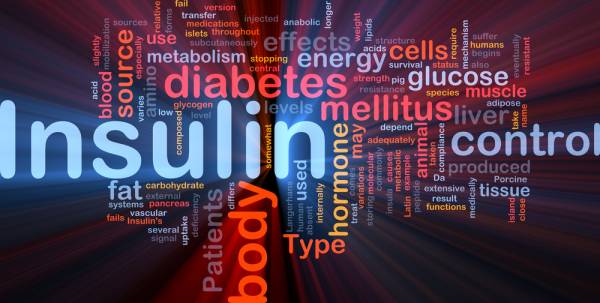Polycystic ovary syndrome, or PCOS, is the most common endocrine disorder in women, affecting an estimated 5-10% of women of reproductive age. It was once thought of as being a fertility problem, but it is now know that PCOS is a metabolic disorder like diabetes that can have serious health consequences if not diagnosed and controlled.
Normally, during each menstrual cycle, many small follicles grow in your ovaries and form eggs. At mid-cycle, or ovulation, one egg is released from one of the ovaries and all the other follicles over-ripen and break down. However, in PCOS, ovulation does not occur and an egg is not released. The follicles don’t break down, but fill with fluid and turn into cysts. The ovaries can then swell in size, sometimes becoming two to five times larger than normal.
As to the exact cause of this condition doctors are still uncertain, but research suggests that the ovaries of women with PCOS produce more male hormones known as androgens (such as testosterone) than normal because the women can’t process insulin properly. This insulin resistance is caused in part by lifestyle factors including being overweight due to poor diet or physical inactivity.1
Signs and Symptoms
Symptoms can begin at any age, they may develop during puberty and the start of menstrual periods may be delayed or not happen at all. Each woman’s symptoms may be different, but usually they will include some or all of the following:
- Excessive hair growth on the face, chest or abdomen
- Irregular or absent periods
- Abnormal bleeding from the uterus
- High blood pressure
- Acne
- Obesity, particularly centred around the middle
- Thinning hair or hair loss in a classic male baldness pattern
- Difficulties getting pregnant or infertility
- Symptoms of diabetes, such as thirst or excessive urination, vaginal thrush (candidiasis) or chronic skin infections
- Polycystic ovaries shown on ultrasound, although this sign may not always be present. Conversely, about 20% of women who have not gone through menopause are shown to have polycystic ovaries on an ultrasound yet they may have no symptoms of PCOS itself.
Preferred Dietary Approaches
It is thought that the combination of an unlimited food supply and a modern sedentary lifestyle can trigger full-blown PCOS with insulin resistance and infertility.2 The most beneficial way to deal with the symptoms and cause of PCOS is through dietary modifications.
Dietary changes can include:
 Avoiding sugary foods. The worst offenders are soft drinks, cookies, cakes, chocolate, sweets, and processed breakfast cereals.
Avoiding sugary foods. The worst offenders are soft drinks, cookies, cakes, chocolate, sweets, and processed breakfast cereals.- Avoiding foods containing unhealthy sugar compounds such as high-fructose corn syrup, sorbitol, mannitol, maltitol, isomalt, and glycerol.
- Consider swapping out your sweets for fruits. You should be getting two servings of fruit daily and it’s a much healthier “sweet” option.
- Increase the consumption of vegetables. Ideally you should consume five servings of vegetables daily.
- Obtain organic fruit and vegetables if possible. Organic produce is a better option as your hormone imbalance may make you overly sensitive to the hidden chemicals commonly found in conventional fruit and vegetables.
- Limit processed grain-based foods such as boxed breakfast cereals, white bread, and pasta. Choose small amounts of whole grain alternatives.
- Fiber contributes to improved blood sugar control and healthy bowel function. Aim to eat 25-30 grams of fiber per day.
- Protein helps balance your blood sugar and can help tame a sweet tooth. Fresh fish, lean red meat, organic chicken, organic eggs, whole grains, and legumes are all good sources of protein.
- The type of fat in your diet plays an important role in assisting with insulin reception at the cell level. Cold-water fish, organic eggs, avocadoes, extra virgin olive oil, and raw nuts and seeds are rich in essential fatty acids.
- Ensure you eat regularly and choose healthy snacks mid-morning and mid-afternoon to balance your blood sugar levels between meals. Fruit, nuts, seeds and natural yogurt all make healthy snacks.
Nutritional Supplements That Are Considered Helpful
Co-Enzyme Q10 – Important for energy production and normal carbohydrate metabolism
Chromium – Helps to control sugar cravings and encourages the formation of glucose tolerance factor (GTF), which is a substance released by the liver and required to make insulin more efficient at transporting glucose into the cells.
B Vitamins – Important in helping to correct the symptoms of PCOS. Vitamin B2 helps to turn fat, sugar, and protein into energy. B3 is a component of GTF, which is released every time blood sugar rises and also helps to keep the levels in balance. Vitamin B6 is important for maintaining hormone balance and together with B2 and B3 is necessary for normal thyroid hormone production. B vitamins are also essential for the liver to convert your old hormones into harmless substances, which can then be excreted from the body.
Zinc – Important for appetite control and also necessary for the correct action of many hormones, including insulin.
Magnesium – Levels have been found to be low in people with type 2 diabetes, and there is a strong link between magnesium deficiency and insulin resistance. It is, therefore, an important mineral to include if you are suffering from PCOS
Lifestyle Changes
Weight loss and exercise are known to improve insulin sensitivity and reduce the risk of progression from impaired glucose tolerance to diabetes. Weight loss is also encouraged as it may help induce ovulation and make menstrual cycles more regular.3 Although weight loss can help, altering the diet can have a profound influence on insulin sensitivity.
 The recognition of the link between PCOS and insulin resistance offers an excellent opportunity for early intervention to prevent or delay the onset of type 2 diabetes. On the balance of evidence, a diet low in saturated fat and high in fiber with predominantly low glycemic index carbohydrate foods would appear to be the most logical choice for women with PCOS. Such a diet may help short term in improving the symptoms of this condition, as well as long term in reducing the risk of diseases linked with insulin resistance. In the long term, according to current evidence, these lifestyle changes can help with abdominal obesity, hyperandrogenism, and markers for insulin resistance.4
The recognition of the link between PCOS and insulin resistance offers an excellent opportunity for early intervention to prevent or delay the onset of type 2 diabetes. On the balance of evidence, a diet low in saturated fat and high in fiber with predominantly low glycemic index carbohydrate foods would appear to be the most logical choice for women with PCOS. Such a diet may help short term in improving the symptoms of this condition, as well as long term in reducing the risk of diseases linked with insulin resistance. In the long term, according to current evidence, these lifestyle changes can help with abdominal obesity, hyperandrogenism, and markers for insulin resistance.4
Long-term Risks Associated with PCOS
Long-term complications can appear in women of all ages and women with PCOS have an increased risk of:
- Insulin resistance
- High blood fats/cholesterol
- Heart disease (cardiovascular disease and stroke)
- Pre-diabetes/type 2 diabetes
- Endometrial cancer
- Reduced fertility
Fortunately, with early diagnosis and effective management, the symptoms of PCOS can be treated and the long-term health risks can be prevented, delayed, or minimized.
References:
1.”What causes PCOS.” Managing PCOS. August 2011
2. Holte J. “Polycystic ovary syndrome and insulin resistance: thrifty genes struggling with over-feeding and sedentary life style?” Journal of Endocrinol Invest 1998, 21 (9):589-601
3. “Polycystic Ovary Syndrome (PCOS).” Merck Manuals. November 2012
4. Moran, L., et al., “Lifestyle changes in women with polycystic ovary syndrome.” Cochrane Database of Systematic Reviews, 2011(2).
Photos courtesy of Shutterstock.






